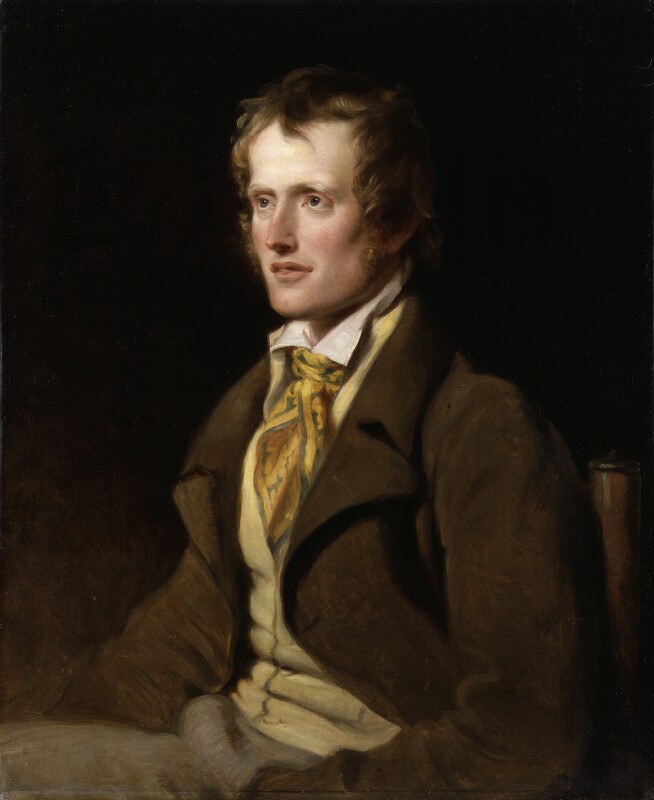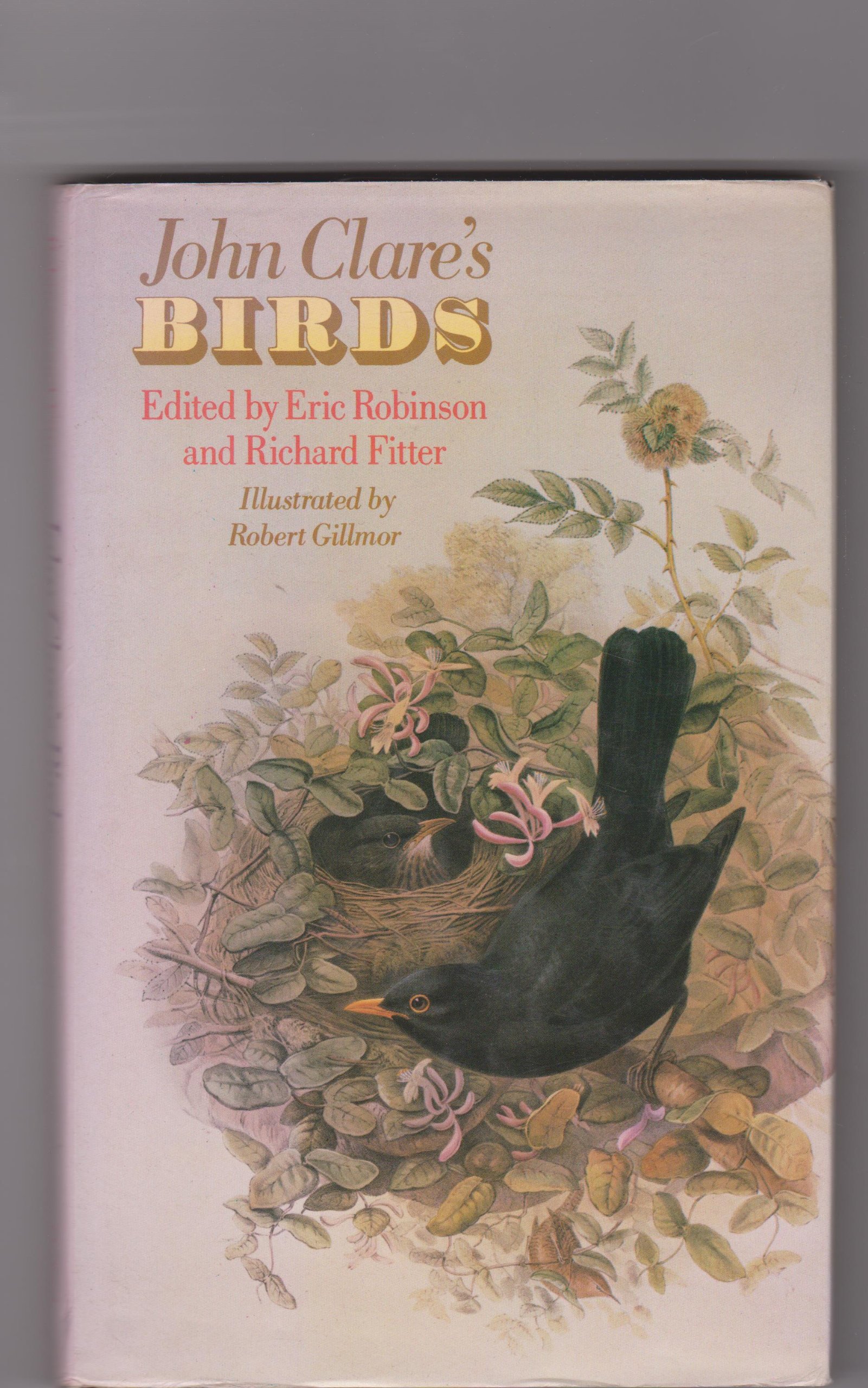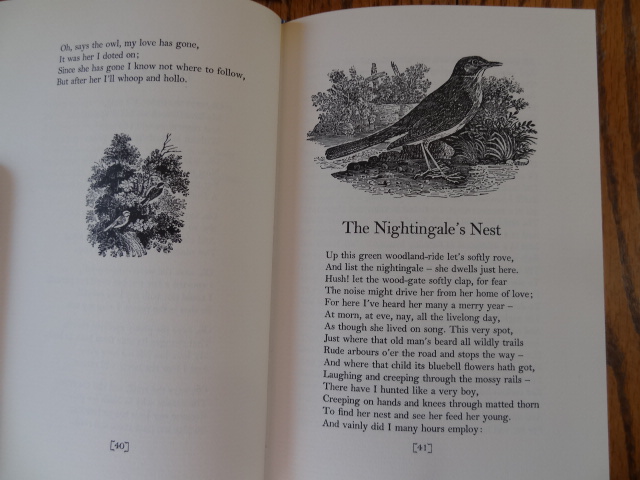
The Nightingale
This is the month the nightingale, clod brown,
Is heard among the woodland shady boughs:
This is the time when in the vale, grass-grown,
The maiden hears at eve her lover's vows,
What time the blue mist round the patient cows
Dim rises from the grass and half conceals
Their dappled hides. I hear the nightingale,
That from the little blackthorn spinney steals
To the old hazel hedge that skirts the vale,
And still unseen sings sweet. The ploughman feels
The thrilling music as he goes along,
And imitates and listens; while the fields
Lose all their paths in dusk to lead him wrong,
Still sings the nightingale her soft melodious song.

To the Nightingale
I love to hear the Nightingale—
She comes where Summer dwells—
Among the brakes and orchis flowers,
And foxglove's freckled bells.
Where mugwort grows like mignonette,
And molehills swarm with ling;
She hides among the greener May,
And sings her love to Spring.
I hear her in the Forest Beach,
When beautiful and new;
Where cow-boys hunt the glossy leaf,
Where falls the honey-dew.
Where brambles keep the waters cool
For half the Summer long;
The maiden sets her pitcher down,
And stops to hear the song.
The redcap is a painted bird,
And sings about the town;
The Nightingale sings all the eve,
In sober suit of brown.
I knew the sparrow could not sing;
And heard the stranger long:
I could not think so plain a bird
Could sing so fine a song.
I found her nest of oaken leaves,
And eggs of paler brown,
Where none would ever look for nests,
Or pull the sedges down.
I found them on a whitethorn root,
And in the woodland hedge,
All in a low and stumpy bush,
Half hid among the sedge.
I love the Poet of the Woods,
And love to hear her sing,—
That, with the cuckoo, brings the love
And music of the Spring.
Man goes by art to foreign lands,
With shipwreck and decay;
Birds go with Nature for their guide,
And GOD directs their way—
GOD of a thousand worlds on high!—
Proud men may lord and dare;
POWER tells them that the meaner things
Are worthy of HIS care.

The Nightingale's Nest
Up this green woodland-ride let’s softly rove,
And list the nightingale - she dwells just here.
Hush ! let the wood-gate softly clap, for fear
The noise might drive her from her home of love ;
For here I’ve heard her many a merry year -
At morn, at eve, nay, all the live-long day,
As though she lived on song. This very spot,
Just where that old-man’s-beard all wildly trails
Rude arbours o’er the road, and stops the way -
And where that child its blue-bell flowers hath got,
Laughing and creeping through the mossy rails -
There have I hunted like a very boy,
Creeping on hands and knees through matted thorn
To find her nest, and see her feed her young.
And vainly did I many hours employ :
All seemed as hidden as a thought unborn.
And where those crimping fern-leaves ramp among
The hazel’s under boughs, I’ve nestled down,
And watched her while she sung ; and her renown
Hath made me marvel that so famed a bird
Should have no better dress than russet brown.
Her wings would tremble in her ecstasy,
And feathers stand on end, as ’twere with joy,
And mouth wide open to release her heart
Of its out-sobbing songs. The happiest part
Of summer’s fame she shared, for so to me
Did happy fancies shapen her employ ;
But if I touched a bush, or scarcely stirred,
All in a moment stopt. I watched in vain :
The timid bird had left the hazel bush,
And at a distance hid to sing again.
Lost in a wilderness of listening leaves,
Rich Ecstasy would pour its luscious strain,
Till envy spurred the emulating thrush
To start less wild and scarce inferior songs ;
For while of half the year Care him bereaves,
To damp the ardour of his speckled breast ;
The nightingale to summer’s life belongs,
And naked trees, and winter’s nipping wrongs,
Are strangers to her music and her rest.
Her joys are evergreen, her world is wide -
Hark! there she is as usual - let’s be hush -
For in this black-thorn clump, if rightly guest,
Her curious house is hidden. Part aside
These hazel branches in a gentle way,
And stoop right cautious ’neath the rustling boughs,
For we will have another search to day,
And hunt this fern-strewn thorn-clump round and round ;
And where this reeded wood-grass idly bows,
We’ll wade right through, it is a likely nook :
In such like spots, and often on the ground,
They’ll build, where rude boys never think to look -
Aye, as I live ! her secret nest is here,
Upon this white-thorn stump ! I’ve searched about
For hours in vain. There! put that bramble by -
Nay, trample on its branches and get near.
How subtle is the bird ! she started out,
And raised a plaintive note of danger nigh,
Ere we were past the brambles ; and now, near
Her nest, she sudden stops - as choking fear,
That might betray her home. So even now
We’ll leave it as we found it : safety’s guard
Of pathless solitudes shall keep it still.
See there! she’s sitting on the old oak bough,
Mute in her fears ; our presence doth retard
Her joys, and doubt turns every rapture chill.
Sing on, sweet bird! may no worse hap befall
Thy visions, than the fear that now deceives.
We will not plunder music of its dower,
Nor turn this spot of happiness to thrall ;
For melody seems hid in every flower,
That blossoms near thy home. These harebells all
Seem bowing with the beautiful in song ;
And gaping cuckoo-flower, with spotted leaves,
Seems blushing of the singing it has heard.
How curious is the nest ; no other bird
Uses such loose materials, or weaves
Its dwelling in such spots : dead oaken leaves
Are placed without, and velvet moss within,
And little scraps of grass, and, scant and spare,
What scarcely seem materials, down and hair ;
For from men’s haunts she nothing seems to win.
Yet Nature is the builder, and contrives
Homes for her children’s comfort, even here ;
Where Solitude’s disciples spend their lives
Unseen, save when a wanderer passes near
That loves such pleasant places. Deep adown,
The nest is made a hermit’s mossy cell.
Snug lie her curious eggs in number five,
Of deadened green, or rather olive brown ;
And the old prickly thorn-bush guards them well.
So here we’ll leave them, still unknown to wrong,
As the old woodland’s legacy of song.
John Clare
Details of 2020's Keats-Shelley Prize click here.
Details of 2020's Young Romantics Prize click here.